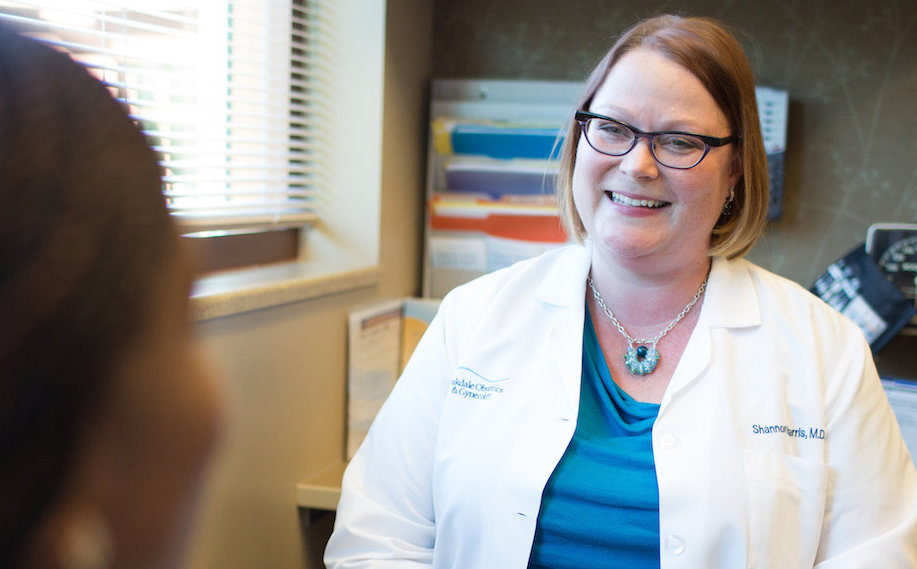By Shannon Harris, M.D.
Primarily my relationship with COVID-19 is a protected and distant one right now. I talk about it, learn about it, and prepare for it. I sort through the ever-changing information and recommendations, educate and reassure patients…and wait. Wait for the surge, wait for it to be better, wait at home, wait to go to the store until the fridge is nearly bare, wait for it to end. I am an obstetrician in a community-based practice and hospital in Maple Grove. It is extremely unlikely I will be confronted with anything close to the overwhelming number of sick in New York City. But I need to act like it could. I wear a surgical mask all the time in clinic and the hospital, constantly assess and reassess when I need to up the game and wear my N95. I screen for symptoms, review what procedures are ‘high risk’, and when it is worth using precious personal protective equipment (PPE) resources.
I have all the same feelings as my patients: anxiety at what might happen, gratitude that I am healthy, relief that the curve has been pretty flat the past few weeks, sad that I can’t see or hug family and friends, appreciation for those on the front lines and happiness when I see the bright spots. And like my patients, those emotions may fluctuate quickly, catch me by surprise, affect my ability to concentrate.
My patients see me for a short time (mostly virtually now) on a day when they may be experiencing any or all of those emotions. A patient who seems to be weathering this all very well may have a long list of fears at her next visit. The woman who has struggled with anxiety symptoms throughout her pregnancy is doing very well – she’s got this, has her fears under control. There are fewer questions from patients now – we all understand there are no definite answers and we are doing everything we can to slow this and maybe eventually beat it.
This is a strange feeling for those of us who have spent most of our lives immersed in science, data, peer-reviewed studies and best practice advisories. This event is messy science: observing and reporting what is happening, guessing at what might happen, using statistics from small, hurried studies to direct our medical decisions, information changes daily. I just keep telling myself we are doing our best. Our best to prevent the spread, find a vaccine, care for those who have it. And that we will get through it.

